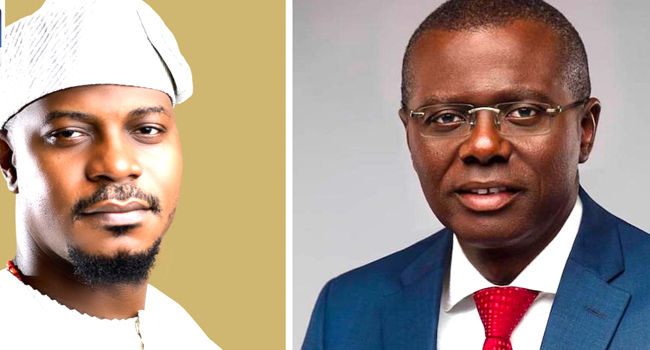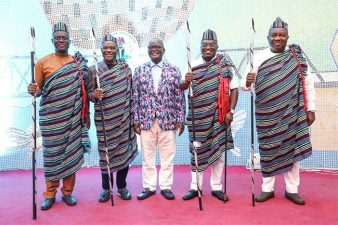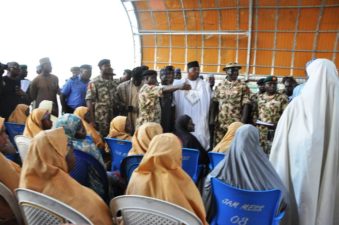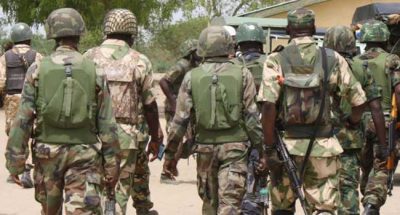Update reaching us says the Lagos State Governorship Election Tribunal has adjourned for judgment on a date to be communicated to parties, its decision in the petition filed by the governorship candidates of the Labour Party (LP), Gbadebo Rhodes-Vivour; and his counterpart in the Peoples Democratic Party (PDP), Olajide Adediran popularly known as Jandor.
According to the update, the Justice Arum Ashom-led panel gave this ruling after listening to the final written arguments of parties in the two petitions, on Saturday.
Rhodes-Vivour and Jandor are challenging the return of the All Progressives Congress (APC)’s governorship candidate, Babajide Sanwo-Olu, as well as his deputy, Obafemi Hamzat by the Independent National Electoral Commission (INEC) in the March 18 governorship elections in Lagos State.
While the two petitioners were absent, the third respondent (Hamzat) was present in court on Saturday.
Based on the agreement of all parties, the three-man tribunal first listened to the adoption of the final written addresses of parties in the petition filed by Rhodes-Vivour.
INEC is the first respondent in the petition, while Sanwo-Olu and Hamzat are listed as the second and third respondents respectively. The APC is listed as the fourth respondent.
Counsel for INEC, Senior Advocate of Nigeria, Charles Edosonwan, in the adoption of his final written address, asked the Tribunal to dismiss Rhodes-Viviour’s petition for lack of evidence.
He said, “One of the issues raised by the petitioner is whether the election was conducted in substantial compliance with the Electoral Act? On this issue, we say that they have provided no scintilla of proof to show it wasn’t. A petition erected on such an allegation was sought to be proven by 10 witnesses in a state that has 13,325 polling units. The petition is materially challenged.
“The petitioner dumped an avalanche of documents before the Tribunal without speaking to them. The Tribunal should therefore dismiss the petition.”
Counsel for the second and third respondents, Senior Advocate of Nigeria, Wole Olanipekun, in the adoption of his final written address, told the Tribunal that the petitioner “abandoned” his petition in his final written addresses.
He noted that there was no reference to the second respondent but instead, the address dwelt on the third respondent.
“They have abandoned their petition and also abandoned any issues against the second respondent.
“The petition borders on non-qualification and the written address borders on disqualification. There is a jurisprudential difference. The petitioner also put some exhibits before the tribunal in respect of the third respondent. The exhibits have no name and no signature. The purported oath of allegiance is of Mr Nobody. It’s omnibus.
“Election Petition is different from election expedition. It’s not a cruise. What the petitioner has embarked upon is a frivolous expedition. They are walking on banana peels and the petition has to fail. If wishes were horses, the petitioner may in the future become governor. We urge the court not to accede to their request as it’s not the duty of the tribunal to assist the petitioner resuscitate their case which has been abandoned.
“No witness came before the court to ask for anything. The petitioner didn’t come, nobody asked for anything, nobody adopted any witness statement so why are we here?” the learned senior counsel asked.
“The petition is frivolous. This is the turf of law and it’s what is presented here that counts. We do law here not on social media,” Olanipekun concluded.
Counsel for the third respondent, Senior Advocate of Nigeria, Abiodun Owonikoko, in adopting his final written address also noted that the petition is against the deputy governor.
He said, “Two issues were formulated. One is about the effect of his oath of allegiance, and the second is about Mr Governor putting him forward. So, it’s all about a person who was not sold to the electorate. So it relieves the court of the burden of dealing with other irrelevancies
“It’s important that the court has a chance to demonstrate whether Nigerians who remit money back home are second-class citizens.
“The third respondent got a Ph.D. abroad in 1991 in the US and he was headhunted back to Nigeria. Are we saying Nigerians abroad cannot come back to deploy the wealth of knowledge and experience they have garnered abroad?
“In any case, we thought we were coming here to defend the elections but we ended up turning this to an immigration court. 30pgs of their address was devoted to this-the future of Nigerians to hold office once they acquire foreign nationality!
“Clause 14 of the American passport states that your being granted citizenship does not relieve you of your obligation to your country of birth. His allegiance to the US does not void his allegiance to his country of birth.”
Counsel for the petitioner, Olagbade Benson, in his arguments, cited Section 182(1-5) of the Constitution which he said disqualifies certain persons from holding certain political offices irrespective of their place of birth.
“Has there been proof that the third respondent is caught by the provisions of S 182(1a)? We say we have proven those facts,” he said.
“Counsel to the 4th respondent has even admitted in open court that the 3rd respondent made an oath of allegiance to the US and it bounds his client,” he concluded.




